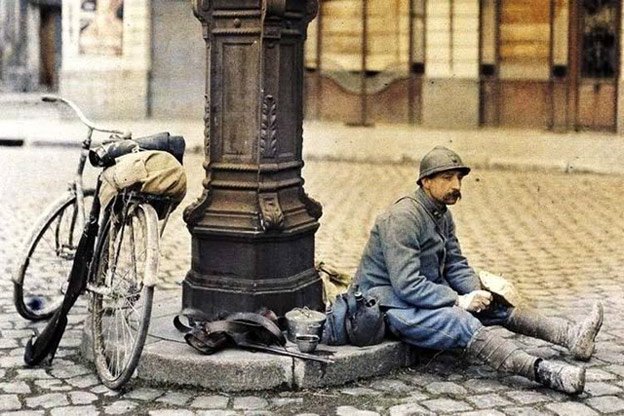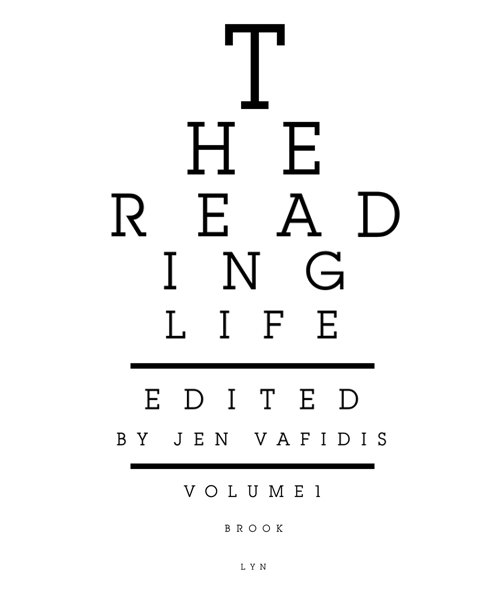I will not be the first or the last person to think of her experiences as an American in Paris while reading a Henry James novel. But I can’t help it. The Ambassadors does one trick, among many others, very well: it takes me back to all the comparisons I made, but barely understood, between my life at home and my life abroad. “We’re all looking at each other–and in the light of Paris one sees what things resemble,” one character says to the protagonist, and by God she’s right, not just about Paris, but about anywhere temporary and foreign. Strether, our hero, seems constantly to be drowning in these comparisons. He is forever thinking of Woolett, Massachusetts; others never fail to remark on his Boston speech patterns; and yet he is also consumed with the present, with Paris, with what he feels he should have done already and is incapable of doing on his own.
In Paris, I was told I spoke French with an English accent, and I found it more difficult than usual to focus on the present. I found time, I guess, to go to school. I had a job. But I also discovered Turkish restaurants that refused to have menus and more than a handful of plates that matched; bars with regulars who seemed to be unaware that the Allies had won; bored prostitutes shouting presidential election results to one another from across the street. My bike was stolen. I nearly fainted at the Gare du Nord. I went to see a movie about San Francisco — Zodiac, because we all know the way to indulge homesickness is a serial killer thriller — and I was so transported that I wandered home like I had woken up in someone else’s bed. I shouted French obscenities at a Citroen that almost hit me, and I argued indignantly for a half hour with a policeman over his right to search me. It was as if that whole period were a highly productive fugue state, in which I learned how to swear and get lost, but nothing else.
I had my first panic attack in Paris. It struck in the middle of the night while I was writing something now unimportant, with plastic bottles of Diet Coke and empty packages of Haribo crowding my laptop. Pains in my chest, lightheadedness, and dizziness worsened until I was convinced I was having a heart attack. Hysterically, I began to wonder who could help me. I had a hunch that I probably wasn’t going to die, not at that moment anyway, and certainly not from too much soda and candy, so I called a friend.
“You are having a panic attack,” she said.
Anyone with a passing knowledge of anxiety, gleaned from, say, The Sopranos if not from personal experience, understands the concept of triggers. Triggers can be more obvious than dreams. They can make you feel dumb like an animal, and out of control. What I was writing, if it was the precedent to my attack, was probably not unimportant at all; I am perhaps leaving out the most important detail. But internal chaos, especially when it seems like nothing to an observer, can’t be so easily reduced. At the most basic level, this is the stuff of all modernist 20th century literature, its forefathers, and their forefathers before them. The mystery of how to explain our motivations and our desires, what stalls us and what compels us, is as old as it is frustrating.
Recently I was bowled over by another James novel, The Portrait of a Lady, particularly a chapter late-ish in the novel where the protagonist, Isabel Archer, whose interiority has been offered to the reader only in flashes, looks at the fireplace and thinks. That’s all that happens: she thinks. She thinks through what her husband has just said to her, she thinks about what went wrong between them, what has happened in the last several years of her life. We are given intimacy of a caliber we might not get from our closest friends. She remembers that her husband once told her “that she had too many ideas, and that she must get rid of them”; she asks, with no expectation of a solution, “When a man hates his wife, what does it lead to?” She concludes that she is stuck. But when the chapter ends, we get no relief. We continue to fail to understand why our heroine act the way she acts, and it is totally infuriating.

While I was in my early stages of infatuation with Portrait, I described my frenzy to friends this way: “It’s just chapter after chapter of people saying the realest shit to each other.” That’s only sort of true. People are always saying five things in one sentence in Henry James novels, so it’s not like any of his characters are telling it like it is. But there is something refreshingly dramatic about every interaction, no matter how small. James shines a light on moments that surround and ultimately lead to the disastrous, and he does so with sublime romance and catty asides. Every look is pondered; everyone discusses everyone else; everyone is full of weighty thoughts. And nothing happens. People’s changes are imperceptible until they become unbearable.
My second panic attack was defeated by my landlady. I lived on the ground floor of a three-story house on a private, gated street south of Pigalle, the red light district. My landlady was very thin and loved the color pink. Her face betrayed her forays into plastic surgery. When she smoked, she left her cigarette butts in the kitchen sink. She constantly talked about her divorce. I heard rumors about her having an affair with Gérard Depardieu ; she once mentioned him to her youngest son in front of me. “Remember him?” she said, rubbing her son’s neck. I tended to avoid her.
But for this second panic attack, I was alone again in the middle of the night, writing a paper for school on Mallarmé. Realizing what was happening to me, and how helpless I was to stop it, I started to cry. Sound carried, no matter how quiet I was. I heard a knock. I opened the door to see my landlady, without makeup, in a thin bathrobe. After some attempts to explain what was upsetting me, which she met with sympathetic looks, I admitted that I was having a panic attack.
“I have just the thing,” she said. “Wait.” She went upstairs, got some sedatives and water, and told me to lie down after giving me probably more than an American doctor would suggest. I obeyed. She combed her fingers through my hair and called me terms of endearment. She told me about her son’s piano lessons. How tough they were for him! But how good for him at the same time. He was so stubborn, like his father. She talked like this until I fell asleep, peppering her speech with assurances that I would be fine, and she left the pills on my nightstand, on top of a stack of books and magazines.
We didn’t really interact after that. I remember her name only because her address is still saved in my Amazon account history. Clara Limage: it has to be fake.
There is a devastating section in Portrait, when Isabel is thinking about her past:
She remembered a thousand trifles; they started to life with the spontaneity of a shiver. That is, she had thought them trifles at the time; now she saw they were leaden-weighted. Yet even now they were trifles, after all; for of what use was it to her to understand them?
James goes on to say that Isabel envies her cousin for being at death’s door, and that she prefers the feeling of being dead: motionless, with no regrets. And although she goes on to realize that she has more life to live, that she will “not escape,” that she “should last,” it’s one of the darker affirmations of life I’ve ever read. “When had it ever been a guarantee to be valuable?” she wonders. She hugs her friend greeting her in London with “a feeling which in other circumstances would have had much of the effect of joy.” Sounds just miserable.
My panic attacks have become infrequent enough that, after they pass, if they come at all, it’s as if I have woken up from a troubling but easily decipherable nightmare, about a pop quiz or an argument with a co-worker. But the feeling of those first attacks is alive in Portrait. I won’t graft modern psychological terms onto stories that predate them, but James wrote scenes that perfectly describe the panic I have felt.
When Isabel refuses Casper Goodwood’s first proposal, for example, he leaves the room, and she:
stood still a moment longer, and then, by an irresistible impulse, she dropped on her knees before her bed, and hid her face in her arms.
When Casper proposes again (when will he ever learn?), echoing Milton’s Adam and Eve by saying that “the world is all before us,” Isabel reacts with less control:
Isabel gave a long murmur, like a creature in pain; it was as if he were pressing something that hurt her. ‘The world is very small,’ she said, at random; she had an immense desire to appear to resist. She said it at random, to hear herself say something; but it was not what she meant. The world, in truth, had never seemed so large; it seemed to open out, all round her, to take the form of a mighty sea, where she floated in fathomless waters. She had wanted help, and here was help; it had come in a rushing torrent.
Casper takes her emotional outburst to mean they are thinking the same thing, and he kisses her. She runs away, back to her cousin’s house, and the last hint at what’s going on with Isabel Archer, from her point of view at least, is this:
She looked all about her; she listened a little; then she put her hand on the latch. She had not known where to turn; but she knew now. There was a very straight path.
According to scholarly lore, James apparently hinted at a dinner party that the last line of the novel — Isabel’s dear friend Henrietta telling Casper, “just you wait” — meant the path led to marriage, if only Casper were patient. But leaving aside authorial coyness, we don’t find out, definitively anyway, what the path leads to. Just that it’s straight, and that it’s there. And that the world was suddenly large, even though she wanted quite passionately to resist it.
Follow Vol. 1 Brooklyn on Twitter, Facebook, Google + our Tumblr, and sign up for our mailing list.


3 comments
I love this post. I’m in Paris – totally there, but better yet I enjoyed your juxtaposition of modern media and 19th century literature. Where else can you see the Soprano’s in the same article as Henry James. Thanks for sharing something as personal as your panic attacks – they sound really scary.